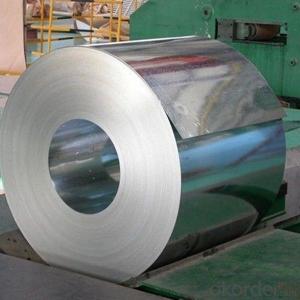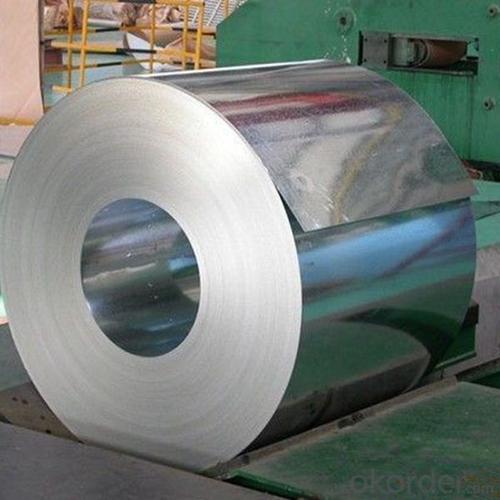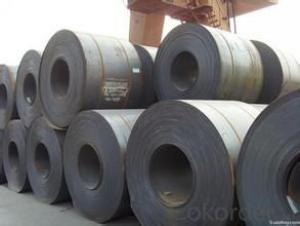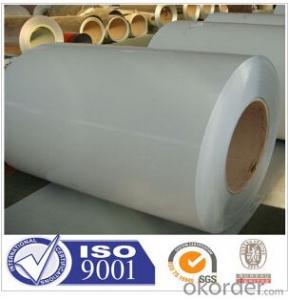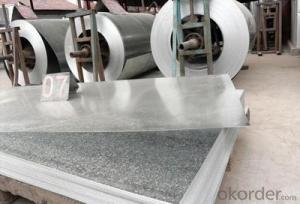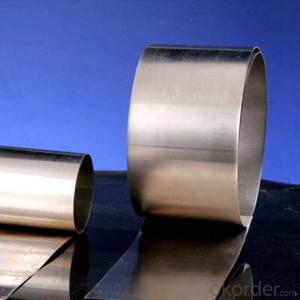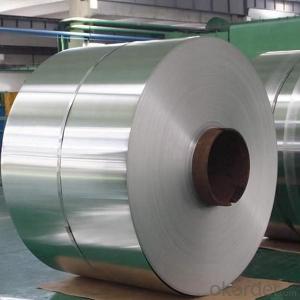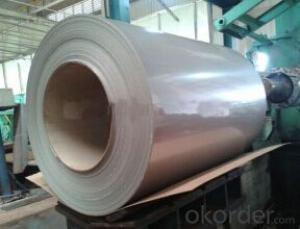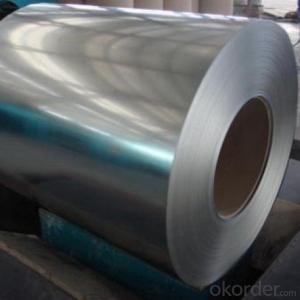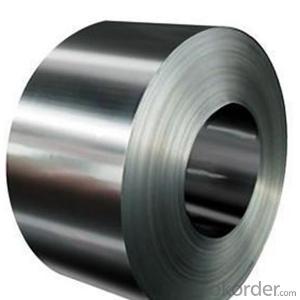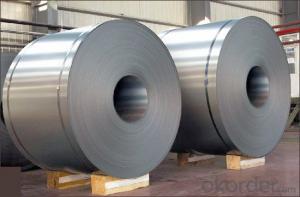304 Stainless Steel Made In China With Good Quality
- Loading Port:
- Huangpu
- Payment Terms:
- TT OR LC
- Min Order Qty:
- 50 m.t.
- Supply Capability:
- 10000 m.t./month
OKorder Service Pledge
OKorder Financial Service
You Might Also Like
Specification
Description for Stainless Steel Coils/Sheets:
Prodcut:Stainless Steel Coil
Thinckness: 0.20mm-8.0mm
Width:1000mm, 1219mm(4 feet), 1250mm, 1500mm, 1524mm(5 feet),
1800mm, 2000mm, 2200mm, 2500mm,and customizable
Ni:0.8~1.2% Cu:1.4~1.5% Cr:14
Standard: ASTM, JIS, GB, BS, DIN etc
Grade: 200series&300series&400series
Surface finish: 2B, BA, 8K, 6K, Mirror Finished, No1, No2, No4, Hair Line with PVC
Manufacture technology: cold rolled/hot rolled
Thickness Tolerance: +/-0.1mm
Width Tolerance: +/-10mm
200 Seriers: 201,202
300 Seriers: 301, 304, 304L, 316L, 309, 310S,321
400 Seriers: 410, 410S, 409L,430
Specifications for Stainless Steel Coils/Sheets:
Type | 200 series,300 series,400 series |
Thickness | 1.8-8.0mm |
Widthness | 1000/1219/1500mm |
Technique | Hot Rolled/Cold Rolled |
About 20 Tons | |
Finish | NO.1/NO.2B |
Place of Origin | Made in China |
MOQ | 18 ton |
Color | Black,Mirror Finished |
Standard | ASTM, JIS, GB, BS, DIN etc |
Exporting countries | Peru,India,Pakistan,Singpore,Vietnam,South Korea,Malaysia etc. |
After-sales service | Factory Inspection |
Certifications | ISO,SGS |
Packaging | Standard export packing or following customer's demand |
Specifications for Stainless Steel Coils/Sheets:
Grade | C ≤ | Si ≤ | Mn ≤ | P ≤ | S ≤ | Ni ≤ | Cr ≤ |
201 | 0.12 | 0.75 | 7.00 | 0.045 | 0.045 | 1.00-1.28 | 13.70-15.70 |
202 | 0.15 | 1.00 | 2.25 | 0.045 | 0.045 | 4.07-4.17 | 14.00-16.00 |
304 | 0.08 | 0.75 | 2.00 | 0.045 | 0.03 | 8.00-11.00 | 18.00-20.00 |
304L | 0.035 | 0.75 | 2.00 | 0.045 | 0.03 | 8.00-13.00 | 18.00-20.00 |
309 | 0.15 | 0.75 | 2.00 | 0.045 | 0.03 | 12.00-15.00 | 22.00-24.00 |
310S | 0.08 | 1.50 | 2.00 | 0.045 | 0.03 | 19.00-22.00 | 24.00-26.00 |
316 | 0.08 | 1.00 | 2.00 | 0.045 | 0.03 | 10.00-14.00 | 16.00-18.00 |
316L | 0.035 | 0.75 | 2.00 | 0.045 | 0.03 | 10.00-15.00 | 16.00-18.00 |
321 | 0.04-0.10 | 0.75 | 2.00 | 0.045 | 0.03 | 9.00-13.00 | 17.00-20.00 |
405 | 0.08 | 0.75 | 1.00 | 0.045 | 0.03 | 0.06 | 11.5-13.5 |
409 | 0.089 | 1.00 | 1.00 | 0.045 | 0.05 | 0.06 | 10.50-11.75 |
410 | 0.15 | 0.75 | 1.00 | 0.045 | 0.03 | 0.06 | 11.5-13.5 |
420 | 0.16-0.25 | 1.00 | 1.00 | 0.040 | 0.03 | 0.06 | 12.00-14.00 |
430 | 0.12 | 0.75 | 1.00 | 0.045 | 0.03 | 0.06 | 16.00-18.00 |
Detail picture for Stainless Steel Coils/Sheets
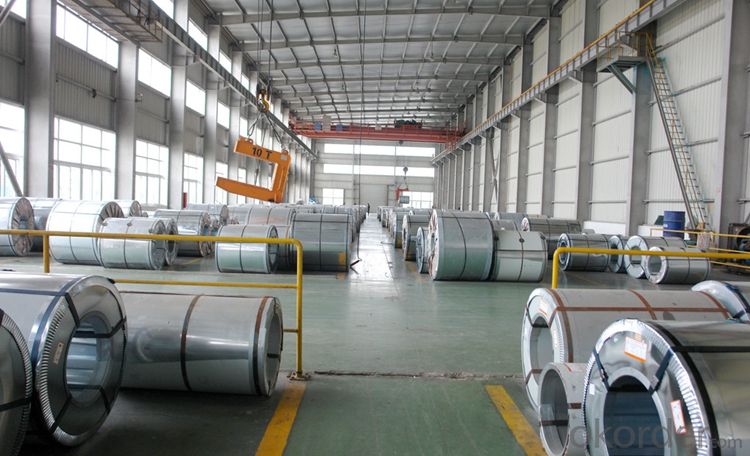
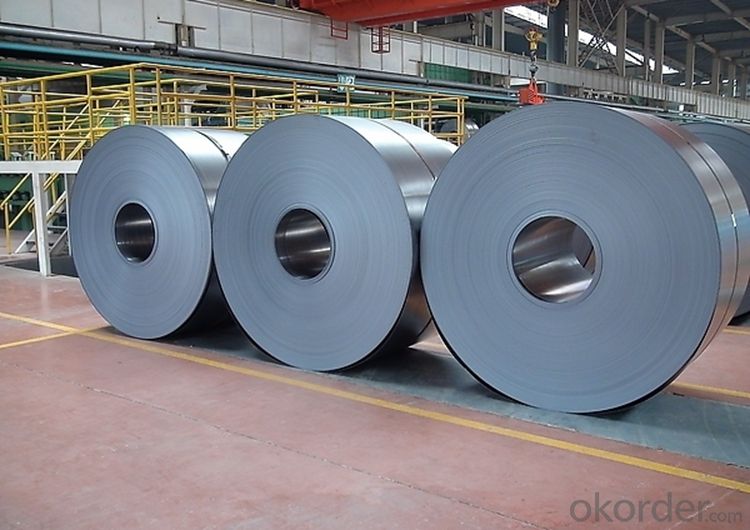
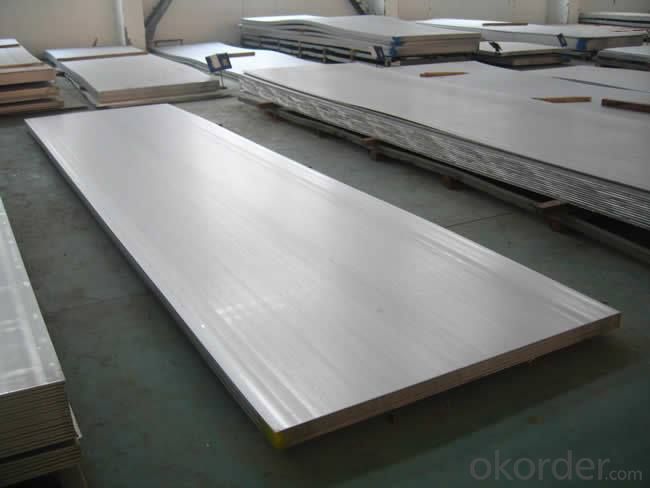
Application of Stainless Steel Coils
(1)Boiler heat exchanger,
(2)Chemical industries,
(3)Hardware fields,
(4)Construction material,
(5)Kitchen utensils,
(6)Building construction,
(7)Medical equipment,
(8)Chemical tank,
(9)Pipe etc
Export Markets for Stainless Steel Coils/Sheets:
Our target market is the international market. Every year we export most of products to countries like India, Pakistan, South Korea, Brazil, Australia, South Africa, Spain, Sri Lanka, Taiwan, Hong Kong, etc.
FAQ for Stainless Steel Coils/Sheets:
Q:How to order?
A: Please send us your purchase order by email or fax .or you can ask us to send you a proforma invoice for your order .We need to know the following information for your order.
1) Shipping information-company name, street address, phone number, fax number, destination sea port
2) Product information – Quantity, Specification (steel type, thickness, width, surface finish)
3) Delivery time required
4) Forwarder's contact details if there's any in China
FAQ for Stainless Steel Coils/Sheets:
Q:What are the advantages of your company ?
A: We have many professionals, technical personnel, more competitive prices and best after-dales service than other stainless steel companies.
Q:Can you arrange the shipment ?
A: Sure we can help you with the shipment. We have forwarders who have cooperated with us for many years.
- Q: A friends of mine says he has balls of steel and i told him i would melt em off with lava. He said it wouldnt work. i disagree
- Standard steel melts around 1400-1500 C. Erupting lava can be as hot as 1600 C. There are various types of steel with different melting points though, and the temperature of lava varies widely, so your question can't really be answered definitively. Some lava is definitely hot enough to melt steel though, so you are right and your friend is wrong. :)
- Q: How are steel coils used in the production of storage racks?
- Steel coils are used in the production of storage racks as they serve as the primary raw material for manufacturing the rack components. These coils are typically cut and formed into various structural shapes, such as uprights, beams, and crossbars, which are then assembled to create the storage rack system. The strength and durability of steel make it an ideal material for supporting heavy loads, ensuring the stability and longevity of the storage racks.
- Q: How do steel coils contribute to the energy infrastructure sector?
- Steel coils contribute to the energy infrastructure sector by serving as a crucial component in the construction and maintenance of power plants, oil and gas pipelines, and electrical transmission systems. These coils are used to manufacture various equipment and structures, such as turbines, generators, transformers, and transmission towers. Additionally, steel coils provide strength, durability, and corrosion resistance, ensuring the longevity and reliability of the energy infrastructure, ultimately supporting the efficient and uninterrupted supply of electricity, oil, and gas to meet the growing energy demands.
- Q: Alright, First off i have an old plywood military box with galvanised steel corners, hinges etc (any part that must be strong) and its rusting! Some of the pieces have discoloration (like an oil stain on them) and other parts are full of this metallic dust. 1) Should i remove this box from my room?2) Is there any way or should i remove the powder on the part?3) Does this pose a serious health hazard?4) What are the oil stains?
- Wipe the powder of and the rest should be safe, unless you stub your toe on the rusty metal.
- Q: What are the dimensions of steel coils used in the structural component industry?
- The dimensions of steel coils used in the structural component industry can vary depending on the specific application and requirements. However, common dimensions for steel coils in this industry typically range from 0.5 to 3.0 millimeters in thickness and 600 to 2000 millimeters in width. The length of the coils can vary but is often around 2000 to 2500 meters.
- Q: How does adding carbon to Iron make it stronger? How does steel look the molecular structure in comparison to Iron? looking for a very scientific answer =]
- Cast Iron' is typically brittle, while 'Maleable Iron' has a small percentage of carbon which allows it to be hammered and formed. Steel is an alloy that consists mostly of iron and has a carbon content between 0.2% and 2.1% by weight, depending on the grade. Carbon is the most common alloying material for iron. Steel is a crystalline structure of iron molecules interspersed with carbon molecules. This is properly known as cementite. The hardness and malleability of steel depends not only on the carbon content, but on how the carbon and iron molecules are arranged to one another. Internal stresses in the steel's crystalline structure will increase or decrease depending on the temperature it is subjected to and the rate at which molten steel is cooled. This 'tempering' can increase the strength of the steel at the expense of brittleness.
- Q: How are steel coils used in the manufacturing of industrial conveyors?
- Steel coils are used in the manufacturing of industrial conveyors as they provide the necessary strength and durability required to support heavy loads and withstand the rigors of continuous operation. The coils are typically formed into various components, such as frames, rollers, and supports, that make up the conveyor system. By utilizing steel coils, manufacturers can ensure a reliable and efficient conveyor system that can handle a wide range of materials and processes in industrial settings.
- Q: what is the densest type of steel ? what is its density ?what is its tensile strength .
- Technically, any metal that is not pure could be considered a steel alloy with the addition of iron. Density will vary depending on the percentage of each alloying element. In commonly available alloys, those with a high percentage of nickel will be the most dense. Nickel has a high molecular weight and readily alloys with most other metals. This class of materials is stainless steels, heat resistant super alloys such as inconel, hastalloy, etc. Tensile strength is not directly related to nickel content. Elements such as boron, manganese, molybdenum, and chromium have the most effect on tensile strength in steel alloys both as rolled and heat treated. Hope that answers your question.
- Q: How are steel coils used in the agricultural industry?
- Steel coils are commonly used in the agricultural industry for various purposes, such as manufacturing equipment like plows, harrows, and cultivators. They are also used for constructing storage structures like grain bins, as well as fencing and livestock enclosures. Additionally, steel coils are used in the construction of agricultural machinery and vehicles, ensuring durability and strength in demanding farming conditions.
- Q: How are steel coils used in the production of household appliances?
- Steel coils are used in the production of household appliances as they serve as the primary material for manufacturing various components such as the outer body, frame, and internal structures. These coils are formed into different shapes and sizes, allowing for the creation of durable and robust appliances. The steel coils provide strength, stability, and resistance to wear and tear, ensuring the longevity and reliability of the appliances.
Send your message to us
304 Stainless Steel Made In China With Good Quality
- Loading Port:
- Huangpu
- Payment Terms:
- TT OR LC
- Min Order Qty:
- 50 m.t.
- Supply Capability:
- 10000 m.t./month
OKorder Service Pledge
OKorder Financial Service
Similar products
Hot products
Hot Searches
Related keywords
